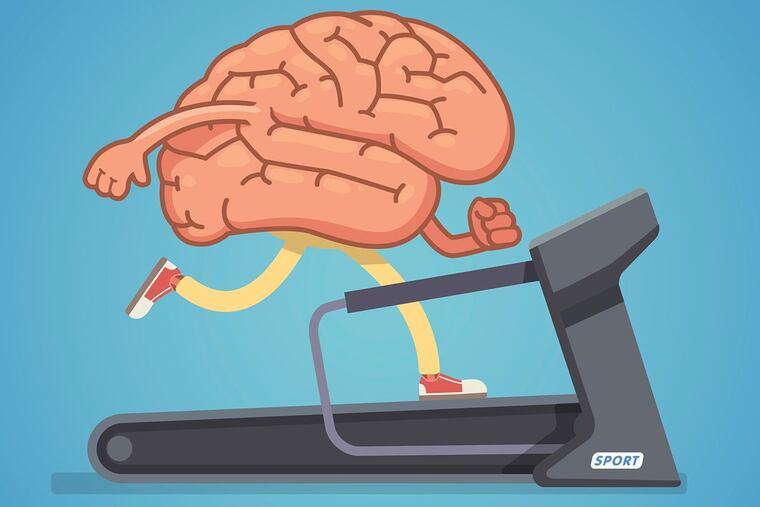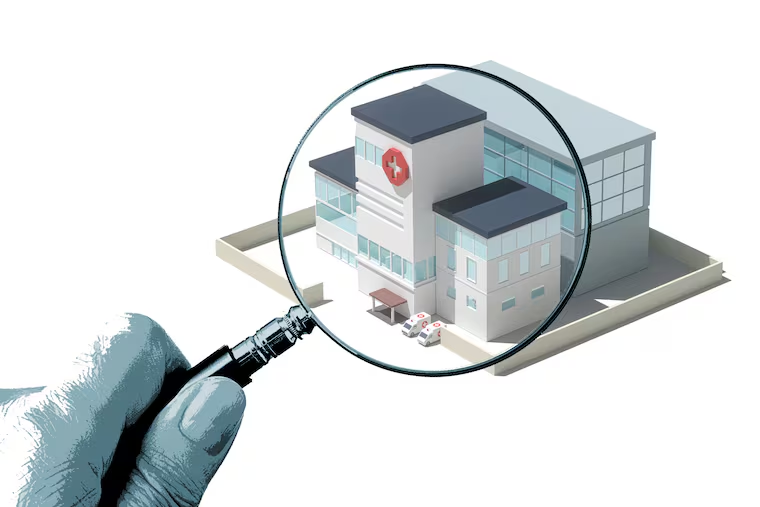Skip to contentJoanna Fong-Isariyawongse, The Conversation
Barry J. Jacobs and Julia L. Mayer, For The Inquirer
Joanna Fong-Isariyawongse, The Conversation
Joanna Fong-Isariyawongse, The Conversation
Barry J. Jacobs and Julia L. Mayer, For The Inquirer
John Lin and Jalpa Doshi, For The Inquirer
BriarRose Edwins and Hayley Goldner, For The Inquirer
Layla Bouzoubaa, The Conversation
Marcia Dunn, Associated Press
Adela Suliman and Kasha Patel, Washington Post
Marcia Dunn, Associated Press
Adela Suliman and Kasha Patel, Washington Post
Noah Robertson, Tara Copp, and Ellen Nakashima, Washington Post
David Ovalle and Cate Cadell, Washington Post
Geoff Mulvihill, Associated Press
Noah Robertson, Tara Copp, and Ellen Nakashima, Washington Post
David Ovalle and Cate Cadell, Washington Post
Geoff Mulvihill, Associated Press
{"ENV":"f2B8BFw+YE9SWWNDWCF8A39jeEB3DGQFfHN0Cg==","CONTENT_BASE_PROD":"f01jR3cLTURTcARFdiENA39jWgZ0MndcfGNWBnYidAV8Y1pPYzJwT39jfE93DGQEfGB3W2MiZARrYGRPdiJjXXxjdE90InRPf2N3XnQLf198Y3xAYAx/XXxNcE5gVG9da1p7X2BUYAU=","ARC_ACCESS_TOKEN_PROD":"fGBZW3Y+b1prY3NBdDFaA39zUkB0MnBMf3BgBHQMYAV8WnwHYAx0TX9gfE93ImRPf3BkBmAyZAF8XXROYBx4T39gf1pjIlZMfE14BmAccAF8cGgEdzFvWHxaYE5gHGxCfHN7XmMid15/Y3daYAxwBH9Ne1p0InBPa2NkBmMicAB/Y3NbYAxWTXxwe1t0ImdZa11wQHQycAB/Y2BOdzJnX3xjdAZ2MWAHa113XmMhb11rXWNad1RwT2tjfAd3HHBNaFpjW2AMe1h/c3dadiFsAQ==","GRAPHQL_KEY":"UnBJRnRUeAd/BVVOWDJaT3xddAZ0C3gHaE1SB2AMfAdrXXRPdFR4THxzY150HHAFaFp4TnRUf1x/XWtddDFjWH9ddAJ0VGBCf01wQHcxf1l8Y2QGYDJsTX9NYAdjMlJNaF1wQA==","GATEWAY_URL":"fm9ZQ1wxQVxUcHtYYxxaTX9jd1p0InhNfHN0BXQyUk18Y3QDdDFzWXxzYAZ0IWBMf01jWnQyZE1/TXBOYzFgTWhNZ19gDGBMaGBkBWMMc1l/cGtfYwtkCA==","GATEWAY_SLS_URL":"VG9gTnQMcAB8XVIGdi50A39jZE90HGNff2B4B2AcZE9/YHgHYyJkBmhaaEBgHHdYfAVkQHciZ15/c2AHdFR/WX9zfEB2IXwFfF17WnQLb19oWmNfYDF8BQ==","FEEDS_URL":"a2BdWmBUYwRTYHtedAtaA39zXVt2MndZfHBgT3Yid158c3xPdxxzXH9zYE9gDHNZfFpgT2MycEJ/YHhAdzFgTGtjVVt3ImxMfE1aT2AxYAR8YHhNdwtgTWtdYE50DHwGfF1kBXYhb11rXV1adCFsTHxzcAo=","RESIZER_KEY":"U2N3BXcidwRQb2NaXAxaBH5jVV90IWAEf118A3chbE98XXgHdAxeTWhNcAV3DF5Cf01oBXQhb1h/c3BOYwxeTGtjcAN3HG9cf11/XXcib1x+Y3gEYwxZWX9de19jDHtZf3NkBA==","GOOGLEANALYTICS_ID":"VQRnBXcic1tQY39YYy54A39zeAZ0DGdZf01gBmAyYEJ/Y2RAYyJgTH9weE1jDH9f","TWITTER_API_TOKEN":"fn9oTlsicwBTc2tBdwhWA39deE13Mm9YfE1gBmAxb118c1oGYwx8B39jcE53VHwBfE1oBHQMeE9oXXRAdCJ4TGhdZE90MlYBfE13XnchbAB/Y3BPdAxRWGtjWgdjImAEa2NSBmBUbExoXVJOYzF8BGtjZ192IWwFfHNVXndUe1loYGBOYBxgQnxwZ150VGwHaF1zWncicAR/YGtddjFzWGtzZAJjInQEfnNzW3QLf198c39bdzJZXWtdUgN3VGRNaGN/XHcMWV1rY2tfdyFjXnxjZ19gVGxCf3NWQGMyUgRrc3tfdiFvWWhgd1tjIW9cf2B/WnYiUk1rYHdaYwtgAH5jd1p0HGRPa3B3XXYxcABoBWACYyFkT35gaEBgHF4AaE10AncLZE9rcGgCYDF4QmhdY113Il1ea3NaCg==","GOOGLE_CLIENT_EMAIL":"UE1oTVgIdAF8BVpPYDJSA3xzZAZ0HGBNf3NgBnccYAd/cHRPYBxgAHxjcAZ3InRCf01oB3YicAVrXXgHYzF/XXxgaEBjDH9Yf3N/W2MyVkJ/BXRNdiJ7XX9Nf152Intdf01ZW2AxfAVrYGdfdzFzXXxaZ1p3VHwHf2B7W3dUcEJrXWdfdwx7XWhdWgJ0InhNa2B0AnchcAZ8TXgFdjF4TX5jfAo=","GOOGLE_PRIVATE_KEY":"UGBnA2NVWgZSWndedyJaB3xzYE53IlIFaE1wB3QyUk1/TXtfdBx8QnxzfAJ0HF4EaGN8AnQMVgR/Y3RPdzFkT2hda193IWwEaGN8AnQMZE9oTXADdzJwT3xaZAd3MlZNf1pkTmMLeEJrcGROdyFgBWtjf190VG9da2NwQHQic1h+cH9adyJkBHwFZ11jDHRNfmNjXnQyZE1+c3teYwt4TH9jUgZ0MXtffGNwAmAMUk1oXXQDYwxzXn9wf112IWdff2B/X3Qce1xoWnddYyJvX2gFZE9gHHddfHN/XGAyfE1/Y1YCYFR/WHxaaAdjDF5Na3NWTmAcZ1l/cGgDdiJ/X3xwfARgHGdYf1p3WmMLY1x8WnQCYDJ3XH5jc11gHF1fa1p4QGMidAB8Wn9dYBxZWHxjXVpgDGwBf3B8A2MMfABoYGQHYDJsAWhaYAJjIllZfnNaQGMhYAFoWnQFdiFwAHxzWgZ0HGAHf01nXXQMdAV+Y3dddAt8BGhdd11jMmNZfF1gA3QMdExrY2NadAx7WGtjaE90IndZfHNnX3ciUVlrY3AEYwtgT2hjcAZgMWxPa2N3W3Qxb1x/TXdeYzJvWH9jcE93Intdf1prXnQxZE9rY1oGdDF/WH9NfE50VGNYf3NgTmMiXk98c3QGYDJnWGtwa11jIXtYaFpkAnQhZEJ+YGhNYyJvXH9gZAZjIndffGN3W2BUeAV8YGAFYzFvX35wdAVjIllffmBnXGMMbEx+c11fYzJ3WH5wfEBjDG9ffFp3WnQxZ158WngFYwx/XH9wY15jIWQBf2B0AmAyXV5+YGgFYzJSAX9gdEBjIm9YfGNWTWALY1h+cHdcdiJnXmtaZAV0IWddfAVgBmMxeAFrXVldYBx/XnxdWgN2IWwBfwV/XnYiZ1lrWmdfYyFnWH9gY19gMndea114QHcxfE1/TWgGdzJSTXxjcE93MnwFf11kB3QicE98c2tbdyJWTH9jdAR0IlJNf11wBHcMZEJ/TXRNdDFsB35zeAdjMnxCa3N4AnRUfAV/c3NbdBx8TX9NaAR0ImBPa3NgAnQie1h/YHdcdAt7WWtzdAV3IWxPf01zW3QLbE9oYGdedyFjWX9wf1tjDFlca3N0B2Ace1h/BXwEdCJgBmtwYE1gVHNff3B0TWMiXV58YHwCYBx8TXxwdAZjMndZf113X2ALe19+YHdadAxnX2haaANgDF1ZfHBgBmAceAV+YGBOYFRjX3xgYAJjIWddfmBnXGMxY1h+cHhPYDF7X2taZ1pgMmdZfFpgBHQie1h8cHgCYDFzXHxgf1xjIm9ca1pjXmMMWV9rYGgDdiJRWGtgd1tgVHNYfwV7XHYybAB/WmNaYDJ7X35jWV5gDHddfwV4A2AyUk1rY1VcdBxST39daAR3ImRPaE17WnQcYEx/XXQCdwt4B35jdAd0DGwGf2NwTXQLcExrWmdcdzFgBX5zeAN0InRCfF1gQGMLZE1/c2NddFR7WHxja1p0ImdYfF1zW3cMfEx8TXdddAx0TXwFZ1pgC3tYfFp8AnQidAB8cGtedBxSTXxaa1pjMWAAfHBkBWMLY1l8XVYFYzJ8TXxNcAdjDHRCfF1VXGMMd1loY3QFYAx7WGtaaE9jC3NffHB7WmAMWV98YGddYBxeBWtzdAZjMmxCfwVrXmMLe1xrYGddYwxzWWtaa1pjDHtYf2B7W2BUf1l8c1pPdDFnXmhaf19gMnNcfHBkB2Mid1h8c11fYwx/XmtwdANgVGABfnNZXWMMWVh8BXdfYDJeAX5zWkBgMlIBf3BkT2MMfAF8cGBNYyJZX39aaAZjIndfa2B/XGMhZ1l8BXhOdyFsQn9jY1p3MWQHa2N3XnQydAd+YGdfdzJeTGtaZAZ3IXAGaF10A3QyZE9/c2gCYzJnWX9jfAdjMm9YfmNkAnQLe1l8YGRAdzJeT3xzdAd0MW9Zf1pkAncxeEJ/TXQFdyJRXHxwf110MWRCfGBoBGMMbAR+c3QGYwt7WH5gdAR0MllZa2BnW3QxZExoYHtdYyJvWGhaZ11gC2Nff3BnW3QcUkJ+cGgEd1RnWXwFfARjIntcfE17XWAcUV5/YGgDYzJ8AGhaf11jIWRMa3BoA2MiUVl8cGgDdDJ/WWgFaE1gHFFff3BkBnYxf11+cGtaYFRnWWtgaAdjDG9efHBgTmAMWV1oWmNcYyJ/XHxzVgZjIWddf1p/X3Yib11/TVZOYzJ7XHwFYAV2IndeaFpnXWMiY198c3QDYwx/XGgFYE52MWdca3NaA2Myd1l+cHdbYyJ/WGhjaEB0MXhCf3NwQHcccAZ8TXhOdAt8QnxzY1t0IXBPa11gB3RUYE1+Y2QDdAtgTXxNcAJ3HGBMf2N4AnQyXkJrcGtcdyF4Qn9de1p0VHAEaE13XWMMf1h+cGQDYzJwB2taZE9jDFJPfGNgQGMMb1lrYGRNdCJSTXwFe11jC29YfnBoAncieE1oXXQFYzJ3WGtwY1pgC39Yf2N3XGBUcAB8c3ddYzFnWX9wf110MmwGf2BkBGMMZE9/c1ZOYzJzXmhgY19gHHNZfF1ZXWMMf1lrYGtaYAx3XnwFYAZjMmNefnN3XXYhZ1hoYGtfYBx3WWgFd19jIl1YfmBjX2ALc1x+cGQGYDJjXnxjWkB0IntdfHBgTmMib11/XVZOYDJRXHxwd1tjMXtefwV0QGMie15+YHQGYwxdXnxzWV5jIXNeaF1ZW3YhY1x/c1YGYzJgAH5jXVpgHFJCfF1rXncMfEJoY2hPdDJwQmtda190MnRCf11wTnQhcAZ8c3gDdCJWTGtdcAR3VGBPf3N7XnQLYEJ+Y3xPdDFzWWhjdAJ0Mm9df2N4AmMxb1l/Y1VcYzJWQnxdc150HFIEfF1aTWMxY1h/WmhNYDJnWH5gZ19jMXNYa2BkBXcibEJ+Y3ddYwxjXXxzc1p0MW9ef3BkBGMiUV18TXNbdDFwTXwFdAdjMndYfGB/X2MhZ158c2gGdAt7X2haZAdgMndYa3N3W2BUeE1rY3AEdiJnXHxaf1tjIX9ca1p3XGMMc1h+YHRAYBx7WGhaaE5gVH9YfAVrXmAyf1xrYGAHYDJZXnxwdANjInNff2B8T3YhZAFoWnwCdjF/X39aYAV2In9Ya3B/XGMhYAF8BXdeYBxzXH9jWVpjDHdYfAV4B3YhfAF/Y1ZAYyJRXWtgaE12Mntff3BrXXcxYEx/c3gFdCJ8Qn5zZ1p0VGxCfnNwBHQxYE9+c2QDdxxSBXxdcAZ0IXBPfmN7X3QMYAdrc2BNdDJ8T2hjZE10MmBCf013X3QiUk9oY2AFYwt/WWtgZAdgMWxNf3N/X2MMdE98XXQHYAxgTGgFZ19gHHtcf11wT2AcbE1rc3BOdAx8AGtjdE9jDHhMfHNaA3Qye15/YGBNdDFvXmtzWkB0MWNefFpkA3cxZE1oYGgCYzJdWX9Nd113DGNfa1pjXmMhcABoY3QFYyJkT39wYE50ImQFa2BoTmMiXV5+c1oGYyF7WHwFZE9jMn9Zf1pkB2Aye11rc39cdiJjXX9wd19jIndffFp4BmAyZ11rYHwDYwtgAGtwYE9gC2NZfE1ZXGMyUV1+Y1pPYyJsAX9dWVxgMWNeaF1wTmAMe158WmNadjJZXmgFfAdjMmdefmBgT2AMcAB/c3ROdzJwTWtdeE93VGwFfHNVXnQycEx+c3dedAx8BX9ga190DHxNa2NgBHcycEJ/YGtedAxsB3xda11jDGRNf11/W3cie1h+YGgHdAtkQnxjdE13MmxNa11/XWMMfAVoTWNcYwtjWX5jd1p0IXNcfGBkBGMyXkx/c2hPdBxvWHwFaANjDHtYaFp4BXciZ1hoWmgGdjF7Xmhga1t0MWNYf1pkBHYxcEJ8YGdbYzJnXHxNcARgVGNea2BgTmMhYAd/YH9eYzJjWX5weAVjIntZf1pgTmAce1hrWnQFYzFnXmhddE5jC29daGBoBmAcc19/WntfYzJWTGtwZANgDHABfFpoA2Mhc1x8YHdcYwt7WXwFdE1jC3NffnBgTWAyXV5rWmgFYyJdX3xNVk12MX9dfAV0T3YiUV9/YGAFdjJzX2tgdAZjDGwAfGB7WmMyd1l/YHgCYAtsTX5zeE50HF4GfHNgBnQxfE9oXWNbdxxSTHxjcAJ0IXAEa11kBnQMdE1/Y3xAdyFjWWhNd153MWxNfHBnW3cLc1hoXXNedCJgBX9jfEBjC2BCfmNzWnQLbAV8BWRPdCJkT2tadANjC3tZf2NwQHRUe1h8cHhAdDJgTWtzd11gDHxCfmN3XXQyZEJ8TXQFdjF8QmtdcAdjMnwAf3BkBHQyfEx+YH9fYwxwAH5wfAVjDHBNf2NWTXQxf15/BWQCYwx/WXxzVVxgHHdffHBkBGMMb1l/cHQEYAx/WGtgZ1t2InRCf2B3XmMMXV1+cGhPYyFvXH5wfE5jMnAAf1pkBGAyZ19oWmQHYyJnXH9zcAdgMXNZf1pgBGMyXV9/WntfYwt7WWtae1pgDGdef3B8BHYyZ11+YHtddDJgAXwFYAdjIWNdf3NWTmAcdAFoBWRAYDJ/XXxwa1p0IWRMa2N8BnQyfAZ8c2hOdFRkTGtzZAJ3InAGaGNnXXcydE18cGgFdwx8QnxNcAZjMlYEfF17W2MxeE1/cGQCYwxsB2hdcAV0IW9ZfnNkBmMyf1h/TXddYwt/WWgFe153MmxCaFpnWncxbE1+cHwEYzFwQnxzYE13IXNZa1pkTXQyYAVrcGRPdDJZWXxwaE9jIl1daFpgT2MyZ19oXVoEYyFkTX9wYAZ0MmNYfGNjX2MyWV9rY3dfdiFnX2twa1xjDGdea3BkA3cLZ198WmQGYyJSAX5gdE1gHFFZfGBgB3QxZ1x/WnwGYzJdWWhgdAVgC3Ncf2BnW2AyXV9oYGteYyJ3X35geAZjDF1ffnBoB2AxZ1h+c1oDYyJkAH9aY1xjMXtYaGB4QGAcfAB+Y1YGYAxvWH5waAd2IXNea1pjX2AyeAFrc1oHYAtnXX9waAdgMWAAf2N0QHdUYEx8XXhAdDFgT3xjeEB3DFJMf3NwA3QccAVoTXBAdAxST2hdeAV0IXAFfF14BWMyXkx/c2dbdCFwT2hNdE90IndYfwV7XHQMZE9oTX9cYAxeTWtwaAV0MXxCfmNgQHcyd1loY39fYwxdXX9gaE1gVGdZfnBoTmMMUgR/XXAHdCJgQn9dZ11gVHNYa1p/XGMyd1loWntdYwt7WGhdeE13IW9YaGBnXWMxfE1oYGRPdjJgTH9zd15gHFldfGB0A2AcXV5+YH9cYyJsB2twf11gMntYf1p3W2MMc1hoWn9aYDFvWXxjVgJgDHddfAV8TWALZE1+YH9fYAx7WHwFYEBjMntcfnB4BHYif15/BXRNYFRzXX9aYE9gC29ZaAVrW2MhY15rc1lcdiFsAWhaf1tgDF5Ca3BjXmAMXgB8BWBPYzJeAX5zVgJgHHdcfmB0QGMyeE98TXdadAtkQn9NUk90MnRNfGN8TXQMfAd/c2NadzFkTH9dUkB3HHhCf2NwTXQiUk9/XWgDdzJ4TX9gZ1t3IWRPfwVkAnQMXVl8TWAFdyJjWXxwaE1jMlFcfF1wTnQhb15+c3NddDJ8B3xzcEB0InRPfnB3XnQLe1hrXXAEYwx3WGhjXV90IllZf018A2AxY1loBWgDYwtjWH9ddEB3Il4FaE13WmMLY118BWdeYDJjX2tgf190IlYFa3NwAmMiXV5oTV1dYyJ7X35ga1pgVGdffmNrXGMxc118WmtedjF4Qn9wf1pjIndffGBjXnYxZ1h8cGdfdDFgAH9gY11jC3NefmB8B2AMZAB8c3ADYBxvXX9jWk1gC2Ndf3B4BWAxc1h/WmdbYBxZXnwFYE5jC2dea3BgTmMLZ158cHgEdiJ3X2haYAZ2IXgBfAVkBnYhYAB8TVladCJSBH9ddAd0C3wGa11VWnQMcEx8XXxPdAt4Qn9zYAJ3C3hPaGN/WncLbAZ8c2ROdBxSBGgFaAd0IlJCf01/X3QifAZ8c3ACdCJeBWhjcAJ0MlYFf2NwT3QLZEJrc2dedzFkQnxddE50HGRMaE1SA3QLcE98UAwK","BLUECONIC_ENDPOINT":"VGBdXltUWgBUWVUDdz50A3xwZEB3DHdef3N0BnQMZ118Y2BAdAxwQn9ze1p0IndefF1WBnchY158Y11ediJ0AGtaa1pjDFYBa118B3cMf198TX9aYzFgBmhdZAd3MW9c","BLUECONIC_STORE_ID":"fmNVB1wLXUJQY11FXTJaBH5zZAN0MlYFa11zXHQceARrXWQEdzJwQnxNcAd3Ml1YfF1/XnQLcE98TXQDdCFgTX5jcAV3IWwGa118BnQcVkx/TXhPdFR4BmhjdAZ0DF4Gf11oBnQMZ1h/YGRAdAxgCA==","BLUECONIC_KEY":"VQRVB10IWkxrBVVHYyFGA3xzaE92InQGfGNaBmAcZAB8c1pAdicICA==","BLUECONIC_SECRET":"a29jXVhVWUJVc3sHdD58A3xNdE53InxNfGB8T2AcdAV8c3RAdjJ8TH9weE1jMWAFf2NWTXcye1x8YGBAYAtvXn9NYEB3DGQAa11dWndUbAB8BWhNYDFvXnwFYAZ3DGBNa1poBncBCAg=","AMP_AUTH_BASE_URL":"U1oEBmMyVgRrWggBW1V0A3xzZ1tjMndefHN4B3YyZAB8Y1JAdiJnWXxzf1p0MnAEfFp8B3QLYE1/cHwHdxxgT2tgaEB3HHwGf3BnW3cicARrWnxPYzFwBmhadE10VGAFfAV/WmAxbAVrYGNaYAtsTGtdWgRgMmAGa1prWnchZExoBWdbdicICA==","AUTH0_DOMAIN":"aGAFB10+cwZTBQADXCJsA3xwaEBgDGAHf2B4BnYicEJ8Y2RAdAx0B2taeAd0MnAHa2B4B3QMdAF8c2BAYAxwBg==","AUTH0_CLIENTID":"fwR3XnQMb19/XX9Ndz58A39gaEBgDGAGf11oBnQyeAR/Y1ZAYFRsQn9dYE90HGAGf2NoBmMid15/Wn9bYDJgB39jYE5gHHdffGNwBHQhbAdrY3AHdzJsB2tjYEB2ImRMfGNkB3QnCAg=","PIANO_ID":"a01jTVsib1xScGtadjFSA3xdZAZ0HHhCfHB8BHcMd198Y2RAdyJwAH9NZAo=","MIXED_CONTENT":"UGBaAlhVYwVTXX9fXVQFA3xzUkBgHGNcf3NkB3Qyc118YHgHdBxwAHxgfE93InNcf3NVXmMicAFrXVJAdwxgAX9wfE9gMmdff2N/W2BUYE1/c3wGdwx4T3xaZE5jMXAGa113W3RUYAc=","VIAFOURA_SITE_UUID":"UFloAlwhBAZSYHQHWjEBA3xwfAd0DHdYf3N0QHYic19/cGAGdiJgAHxNWgZ0In9da11wBGMie198WmBNYBxkB3xdYARgHHddfF1oTmAMe1l/TXhOYBx8QnxNY1p0DHgEf11wTnQye158TWhOdBxsTQ==","GOOGLE_CLIENT_ID":"a1p7WnYyewZQYABPWDJeA3xzVkB3HHQFfGNST3cicAB8c3BPdDJ0BXxzYAZ0VGAFf2B/W3dUfAF/c3BAdiJwBXxjfEBgHH9efHNVW2MhY11rYGNeYDJWBWtddE53IWAGfF1zW3Qib1x8BXxNd1RvWX9ge153C29fa2NVW3cycAVrXXNfYwx0TGhNa1t2Ml4BaGB/XHYid1loBXxOdxx0Qn5ge113DHdZfGNkA3YyYEJrcHxPdzJwAHxzWk9jMmddfGN0T2MheE1/cGQHYzJ3XQ==","AUTH0_BASE_URL":"VG97W1oIYAF+b0EBdz50A39jZE93MndcfGB4QHYidAV/cGBAdwx0BX9zaAd3HHAEfE1rW3dUbAd/cGdedAxkTWtaeEB3MmwHa1p8TXYieAF8Y1pAYyJ4T38FY150IWNca2BnX3QxYAZrWmAK","CHARTBEAT_DOMAIN":"awVZXlguYwZrBEFZYzJaQn5jc1x0InQFf11nXXQydE1rc3QGdDJZWX9ddEB0MWwI","G_OPTIMIZE_CONTAINER_ID":"VG9BQFoMfExTBVpPWwxaTGhNfAd3IWQFfnN8A3cMdE9rY2dfdwxWQn9dfAQ=","G_TAG_MANAGER_CONTAINER_ID":"fn9BT10+WQRQWWdDYwtgA39afE10DHxCfF18BXccfAB/YHhOdwx4THxNfAo=","SF_CLIENT_SECRET":"UnNkT10IZwNob0EGWyJaT3xdcE93HHwFaE10TncidAR+c2AFdFR8TGtjfAZ0IXwEa11gA3QMbE9oY3xPdAxgT39Ne1p3MlIHfE1VX3RUbE9+c3dedCJwTGtzZ190VGxMfHNoBXcybEx+c3dcdAtgBH9zdE10MnBPf117XHcMXgRoXXQDYwxeQn5jcE90MWBNfHNwQHQxZAV8BXQCdCJgTWtjcE10MWBCa3NzWnQxZ15oXWQDYAxkQn5mDAo=","G_RECAPCHA_V3_KEY":"U3BVR1gcUk9QYGsHYyFCA3wFfE5jInBCfHNaTWMyYAV8TXxNdyJwB3xdZEB2MnhNf3BoTncieAZ/WmgGdwx8QnxzaE93DHNefF1nW2ALY15rY3RPdBxgAH9afAZgDHQEfGN0TWAMc118Y3xNdzF7XH9wZ15jDGRPfE1SCg==","G_RECAPCHA_V2_KEY":"VHBBTlw+e0FUc39OdC50A3xNeEBjMngBfGB4TXQyc1h8YHwFdCJwB39jfE53HHgEf01gTnYyfEJ8Y3BOYwx4BH9wZE90DFZMa1p4T3QMdAV8c39adiJwQnxNeAdgMmBCfGNSBWMMdAZrXXRAYzFkTHwFe1p3InNefF1oCg==","GROWTHBOOK_CLIENT_KEY":"UgVZB3c+ewZSXVoFYBxaBX5jdAd0HFIEfHNgB3QiVk9oY2BPdwxsTX9jY1t0MnQEfmNST3chcEJrY3AGYAx0CA==","SOPHI_HOSTNAME":"fAUJA3QIcE9/c1VOWlV8A39gYEBgMmNdfGB8BnYiYAV/cGQGdiJ3X2tdcEB3MmQFa2B0B3cyZ15rXWAK","HTL_SCRIPT":"UmBnRVwyb19Vf2NGXTJaQnxjcAR3ImRNa3NSB3QiXkJ/c3ADdDJeBH5zcAJ0MnRMaF1jWnciZE18cGhAdyJ7WX5jcAV3Il1Zf1pkTmMLY1x8TXQDdBx8TH9jZAR0HHdYfnBkA2MxfE9rWntaYzF4TGtwZAdjDH9Zf2N4BnQMUkJ+cGADdwxjX3wFYAdjMXgI","LIVEBLOG_WS_SERVER":"UgVnBF1Vd1t8BVoFdAxaTWtzcEB0MmAEfmNkAnQidAV+Y3AFdyJdXHxjcAd0Mn9YfF13X3QiVk1oXWBOdDJvXHxjY1x0VHgEfnNgA3QMY1h+cGgFYAtkCA==","SOPHI_SCRIPT":"UnNnB1ocdwFrYEIEYAxWA3xzcAZ3HGNcf3B0Bncie19/Y1oGdwx3XHxdUkBjInhMf2B0B3QydEx/cHxAdjJzWWtje15jMWNZfwV8B2MLf1h8cHdbYAt8QmtaeE5gC2Ncf01zWnRUcEJrWmtfd1RjXnxdWgRjIWwGa2B0TWMxf19rXVICdxxwBX5jYE50C2NeaGNVW3Qye1x8TWgCdwt7XH5ge1xgHFlda2NWCg==","STATS_WIDGET_CLIENT_ID":"VHNVRFpUZAdSWWNPXAteA3xzWgZ2InNYfGB8B3QMZ158YHxPYAxwBHxzWk9jInRCfHNgT3cidEx8Y3AHdyJ3XXxzWVp0MmRN","_id":"bfbda6529e06a1e96107d0e1284ae60eaed5049e64f1495044d749ef29ab7732"}























